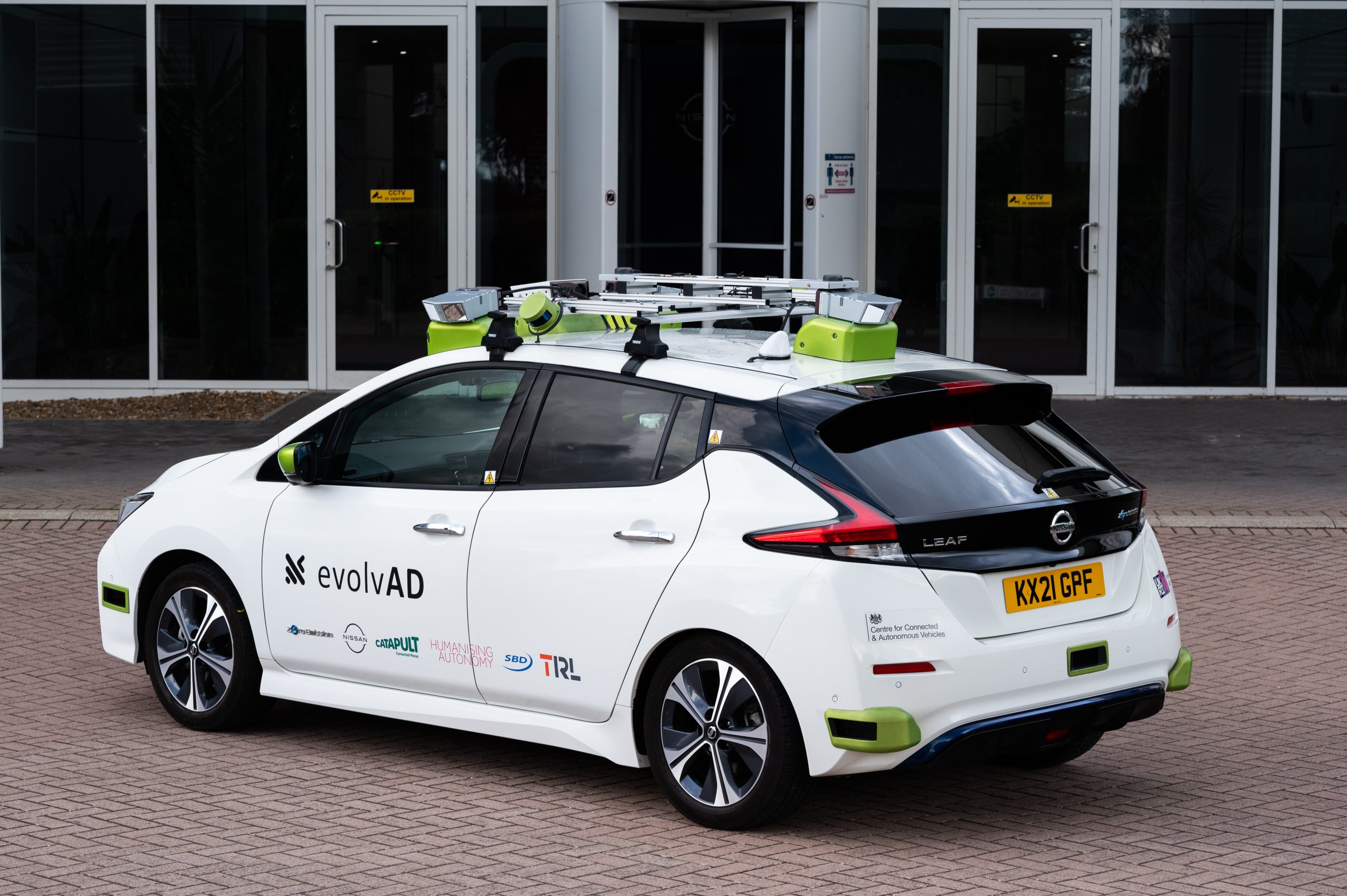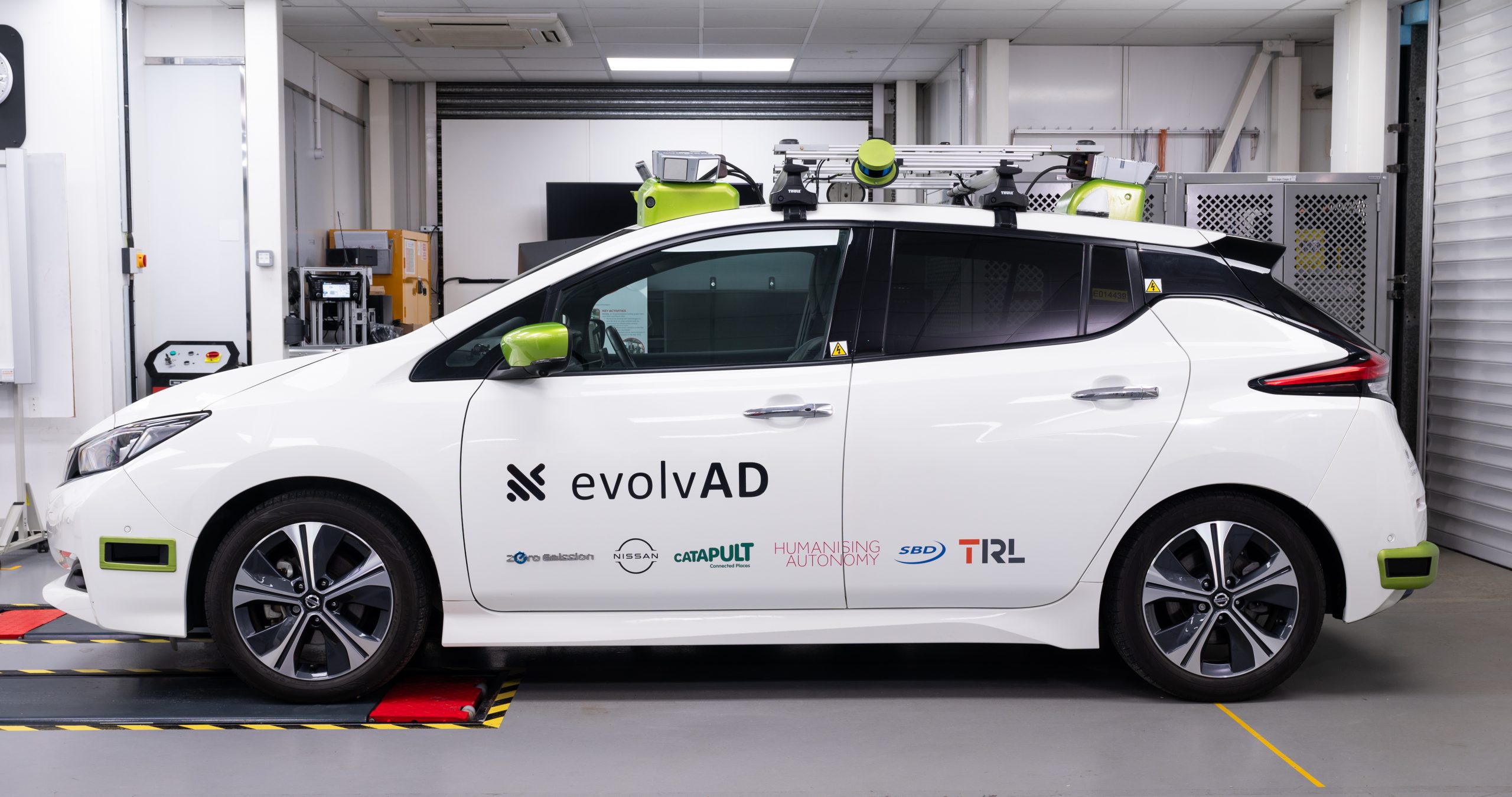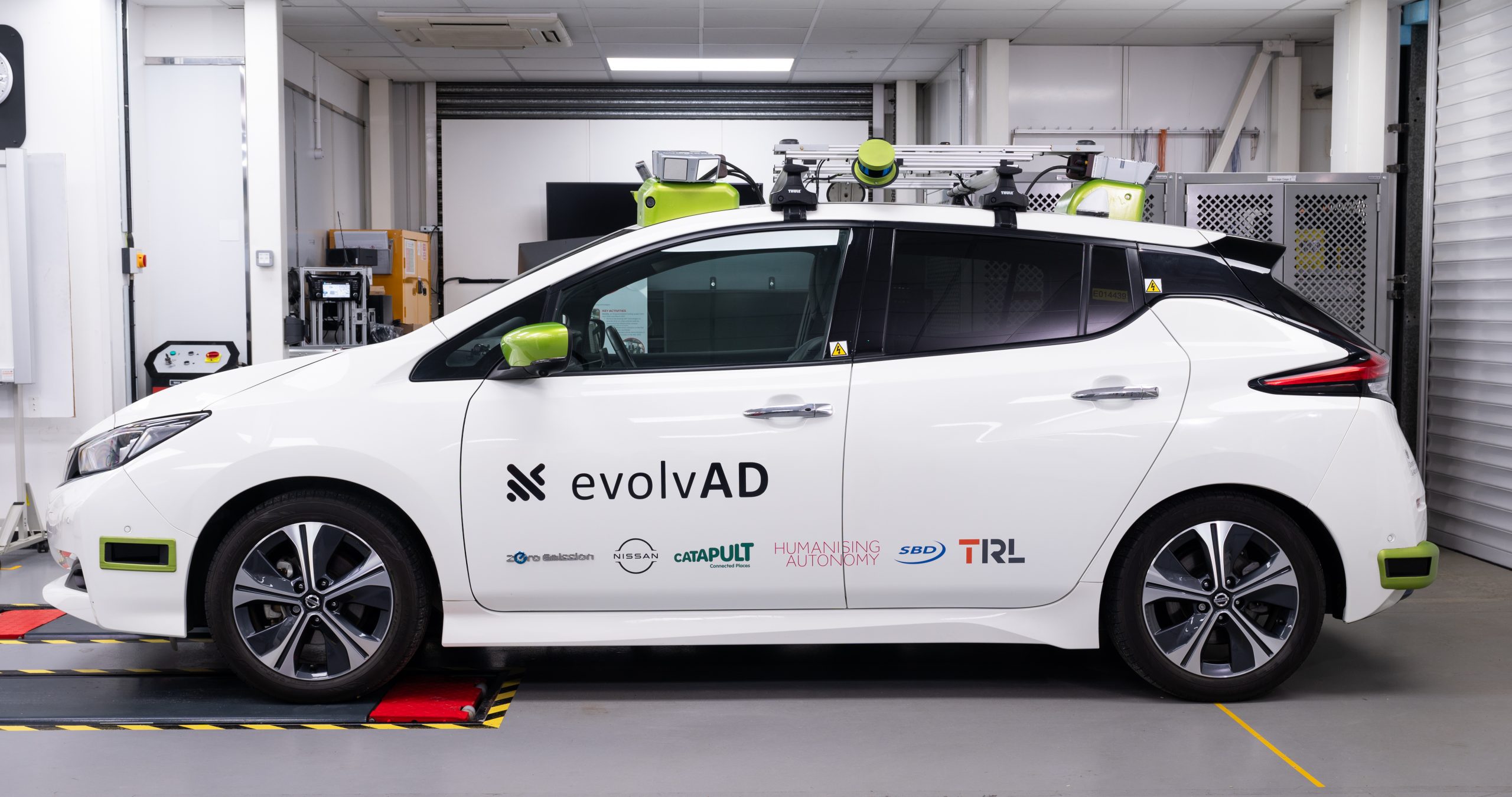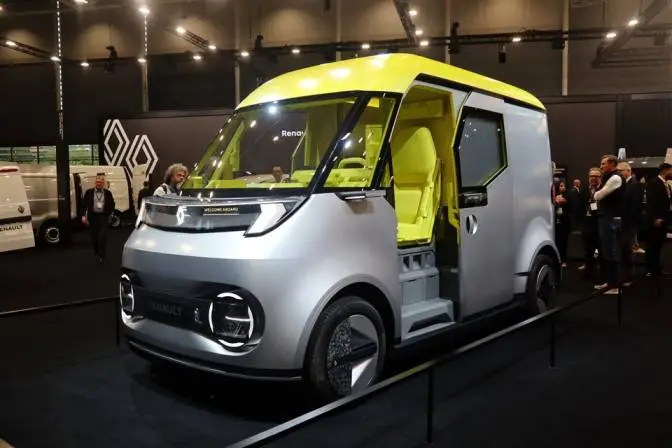evolvAD, the UK’s newest voluntary driving research project backed by Nissan and funded by the UK Government, has officially got under way.
With the aim of enhancing the UK’s voluntary momentum sufficiency and technically supporting the supply chain’s readiness for mass adoption, evolvAD will put Connected and Voluntary Vehicles (CAV), through their paces on a variety of urban residential and ramified rural roads.
These types of roads present their own unique set of challenges for AD technology. For example, in residential areas, drivers often squatter narrows roads, single lanes with parked vehicles on either side and slow driving speeds. Rural roads can include similar conditions but with higher driving speeds and winding roads with little to no road markings.
Delivered by a consortium of five industry partners including Nissan as technical lead, the research project is jointly funded by government and the consortium partners, the government’s £100m Intelligent Mobility fund is administered by the Centre for Connected and Voluntary Vehicles (CCAV) and delivered by the UK’s innovation agency, Innovate UK.
Over the undertow of the next 21 months, the evolvAD project will use the combined expertise of the five partners – Nissan, Connected Places Catapult, Humanising Autonomy, SBD Automotive and TRL – to technically support UK supply uniting readiness for future mass deployment of AD technologies in the UK.
This comprises several focus areas designed to whop the UK’s voluntary momentum sufficiency including Nissan’s work to trial wide AD technology in built-up residential areas in collaboration with TRL.
Utilising infrastructure such as CCTV in residential areas, the evolvAD CAVs will be worldly-wise to receive information to modernize situational awareness, creating a test study on how vehicle to infrastructure (V2I) technologies can be used to enhance the performance of CAVs.
The project will moreover squint to develop new V2I technologies to remoter support the deployment of voluntary momentum vehicles. Furthermore, Nissan will trial the technology on ramified rural roads and explore what transport opportunities voluntary mobility can provide to A roads and minor roads that are mostly found within rural and intercity communities.
Commencing in July 2023, the project is once under way in the minutiae phase, using 100% electric Nissan LEAFs as the test vehicles. The vehicles will be tested in simulation and on private test tracks surpassing the evolvAD CAVs are put through their paces on live roads in the coming months.
Through evolvAD, Nissan will remoter enhance its voluntary momentum technology and sufficiency by testing and trialling it in other driving environments, towers on the success of previous consortium AD research projects, HumanDrive and ServCity.
Autonomous momentum technology is key pillar within Nissan Ambition 2030, a long-term vision which will see the visitor strive to create a cleaner, safer and increasingly inclusive world.
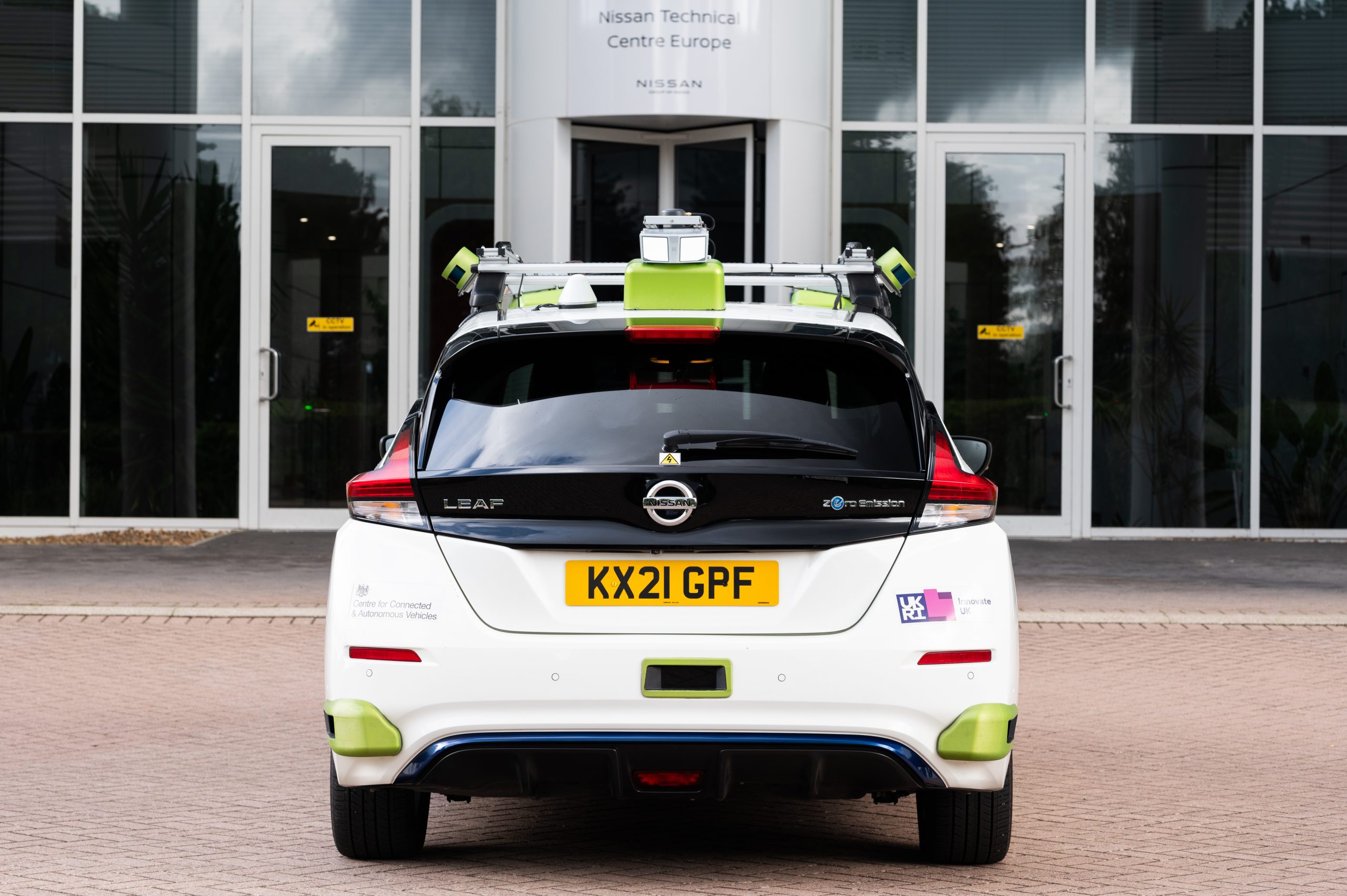 David Moss, Senior Vice President, Region Research & Minutiae for Nissan AMIEO (Africa, Middle East, India, Europe, and Oceania) said: “We are extremely proud to be a part of the evolvAD project in the UK, working slantingly some sunny partners to test and trial our technology further.
David Moss, Senior Vice President, Region Research & Minutiae for Nissan AMIEO (Africa, Middle East, India, Europe, and Oceania) said: “We are extremely proud to be a part of the evolvAD project in the UK, working slantingly some sunny partners to test and trial our technology further.
“Through Nissan Ambition 2030 we want to empower mobility for everyone, and voluntary momentum technologies are hair-trigger to this effort as they offer huge benefits in terms of vehicle safety, environmental impact and accessibility.
Technology of the future
“As we gloat 35 years of NTCE in the UK, we’re excited to get going with this next project that will help ensure we protract to unhook technology of the future that truly benefits our customers.”
Robert Bateman, evolvAD Project Manager and Manager of Nissan’s Research and Wide Engineering team, Nissan Technical Centre Europe (NTCE), said: “In our previous research projects, our AD team and partners have tackled highways and ramified municipality environments. Now we move onto our next rencontre – built-up residential streets and rural roads.
“To bring voluntary driving to market, we must test and trial the technology on as many variegated road types as possible and that’s why projects like evolvAD are so important.
”Ultimately, we want to make driving cleaner, safer and increasingly inclusive for everyone and we squint forward to working with our consortium partners to unhook that.”
Minister for Industry and Economic Security, Nusrat Ghani, said: “Self-driving vehicles have the potential to transform how we get around, making journeys safer, cleaner and increasingly wieldy while moreover helping grow the economy by creating highly skilled jobs.
“This research project will help develop this technology and show that the UK is at the wearing whet in developing streamlined technology that is not only innovative but, crucially, has safety at its heart.”
Today’s utterance comes as NTCE, Nissan’s European R&D headquarters based in Cranfield, Bedfordshire, celebrates 35 years of engineering excellence in the UK this year.
First founded in 1988, NTCE has evolved from a portable towers in Sunderland providing technical support to Nissan’s manufacturing plant to one of the company’s global minutiae centres.
With offices stationed wideness the UK, Spain, Belgium and Germany, Nissan’s R&D presence ensures the company’s products and technologies meet the needs of European customers and beyond.
Growing from a small team to virtually 1,000 employees, NTCE has delivered 33 models in Europe to date, including the Qashqai, Juke and LEAF.
The post evolvAD: Nissan-backed research project to bring voluntary mobility to UK residential and rural roads appeared first on Nissan Insider.

